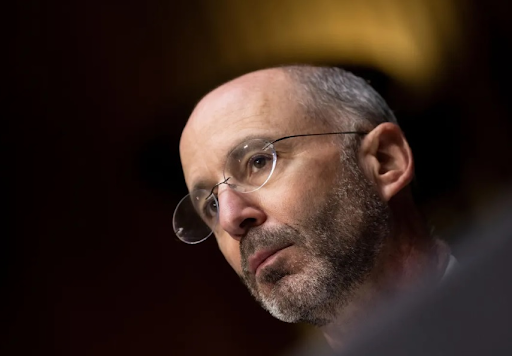The US Special Envoy for Iran, Robert Malley, said on Wednesday that "Iran is perhaps weeks away from enriching the fissile material needed to develop a nuclear weapon."
Malley claimed, during a webinar hosted by the "Foreign Policy" daily related to Iran, that "with regard to the nuclear agreement, the closer the parties are to agreeing on a formula to revive the agreement, Iran puts forward new demands at the last minute."
Malley explained that on September 1, "Iran put forward a new condition, which is that the agreement must be accompanied by an end to the sanctions imposed on it."
He added, "The suspension of sanctions comes within the framework of the agreement, and the latter is not up for discussion now, so the sanctions will continue in the same context."
This comes as Iran affirms that it is serious about reaching a nuclear agreement, and that it will not hesitate to reach a "good, strong and sustainable" agreement, but it is calling for guarantees that the United States will not withdraw from the agreement again, and it is also calling for the closure of the International Atomic Energy Agency's allegations.
It is noteworthy that the Iranian Foreign Minister, Hossein Amir Abdollahian, said, "The Americans are sending us through some foreign ministers that they are in a hurry to revive the nuclear agreement, while the US envoy for Iran, Robert Malley, says, "The nuclear agreement is not among Washington's priorities."
Since the beginning of reviving the nuclear agreement, Tehran has been stressing on 4 basic issues: guarantees after the United States withdrew from the nuclear agreement, lifting sanctions on Iran, verifying the occurrence of these matters, in addition to closing the file of political allegations of the International Atomic Energy Agency.
Malley: The diplomatic option is the most appropriate
The US envoy for Iran claimed during the symposium that, "As soon as US President Joe Biden took office, we immediately declared to our European allies our intention to revive the nuclear deal, provided Iran complies."
He added, "The diplomatic option is the most appropriate to stop Iran's acquisition of nuclear weapons," noting that "we are working in close and coordinated steps with France and Britain to achieve this."
Malley quoted Biden as saying, "The time may come to activate the military option against Iran, but conditions are not yet ripe," noting that "our consultations with the leaders of both parties are continuing on Iran, and we are aware of the size of the opposition of some in Congress."
Earlier, Malley himself spoke about the possibility of the next US president leaving the nuclear agreement, noting that "there are no guarantees that this will not happen."
And at the end of last October, the Iranian Foreign Ministry spokesman, Nasser Kanaani, said: "We believe that the American political will can help sign the agreement," stressing that his country will not wait for an agreement to secure its interests, nor will it link its relationship and foreign policy to the nuclear agreement.
Malley: A new system of sanctions against Iran has been activated
During the symposium, the US Special Envoy for Iran pointed out that the US Treasury Department took into account all the circumstances accompanying the activation of sanctions with the lowest rate of consequences, i.e. diplomacy backed by sanctions.
It is noteworthy that the Iranian Foreign Ministry said, last month, that the madness of sanctions against Iran has turned into a "virus" that is transmitted to countries allied to Washington, stressing that imposing sanctions on the media and journalists is a violation of part of the main rights of the Iranian people to make their voice heard in the world.
According to Malley, "a new system of sanctions has been activated against Iranian officials for their dealings with the protests," announcing that "Washington is devoting its technical capabilities to the demonstrators in order to communicate via virtual space."
Malley announced "his strong support for the demonstrators in Iran," adding that "the demonstrations come at a sensitive historical period that is reshaping Iranian history," as he put it.
Malley added that "Washington's behavior in the 2009 demonstrations in Iran should have been better, and we must deal with wisdom," saying: "We intend with our other allies to hold Iranian officials accountable for what is going on."
The spokesman for the Iranian Shura Council's presidential body, Nizamuddin Mousavi, stated that "about 45,000 people and foreign intelligence agencies are causing riots." Iran also condemned the US interference in its affairs, represented by supporting the riots that took place in Iranian cities.


































No comments:
Write comments